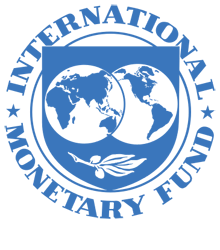| Source: Date: Updated: |
TheBahamasInvestor.com
Tuesday, February 26, 2013 Tuesday, February 26, 2013 |
 Prime Minister Perry Christie said the International Monetary Fund (IMF) forecasts that the Bahamian economy will grow by 2.7 per cent in real terms in 2013.
Prime Minister Perry Christie said the International Monetary Fund (IMF) forecasts that the Bahamian economy will grow by 2.7 per cent in real terms in 2013.
While presenting the 2012/2013 Mid-Year Budget Statement at the House of Assembly, February 25, the Prime Minister also said that the IMF estimates that the economy grew by 2.5 per cent in real terms in 2012, as was projected in the 2012/2013 Budget.
However, Christie noted that given emerging developments, he is confident that the Bahamian economy can achieve significantly stronger growth, with the creation of additional employment opportunities.
Addressing the budget performance for the year 2012/13, Prime Minister Christie said the evolution of recurrent revenues in the first six months of that fiscal year reflected the economic developments during that period.
“Our intake was not as strong as expected because the growth of the economy in current dollar terms, which is our effective tax base, has not been as robust as anticipated.”
He added: “A tighter rein on expenditure is therefore necessary to ensure that we deliver on our deficit target of 6.5 per cent of gross domestic product (GDP), to which we committed ourselves at the start of this fiscal year.”
The Prime Minister said that on the expenditure side, recurrent spending during the first half of the fiscal year has been broadly in line with the budget, and the government has executed about 45 per cent of its planned expenditure.
He explained that capital expenditure during the first half of the fiscal year amounted to some 36 per cent of the projected level for the full year presented in the last Budget Communication.
Speaking on the challenges his administration faces, Prime Minister Christie said that early in the 2012/2013 fiscal year, the government was also obliged to reduce its level of short-term bank financing, which had accumulated due to the combined shortfalls in the projected revenues over the last three fiscal years, 2009/10 to 2011/12.
The short term financing was provided by The Central Bank of The Bahamas, through advances and the purchase of treasury bills, and by the Royal Bank of Canada through an increase in the government’s overdraft facility to $200 million from the normal $100 million.
“When we came to office, we also faced some $100 million in carry-over expenditures from the 2011/12 fiscal period. This $100 million expenditure included the following obligations:
unpaid cheques and wire transfers of $63.14 million; 52-week Job Programme of $23 million; and teachers/public service union lump sum payments of $10.86 million.”
Prime Minister Christie said that his administration has proceeded to reduce the overdraft facility in keeping with its debt management reform exercise, which was foreshadowed during the debate on the amendment to the Financial Administration and Audit Act, which took place November 2012.
“The benefit of this reduction of the overdraft facility is that it will substantially reduce our overall cost of financing. Nevertheless, these bills must be paid. With these adjustments in short-term financing facilities, it is necessary to settle obligations through longer-term borrowing.”










